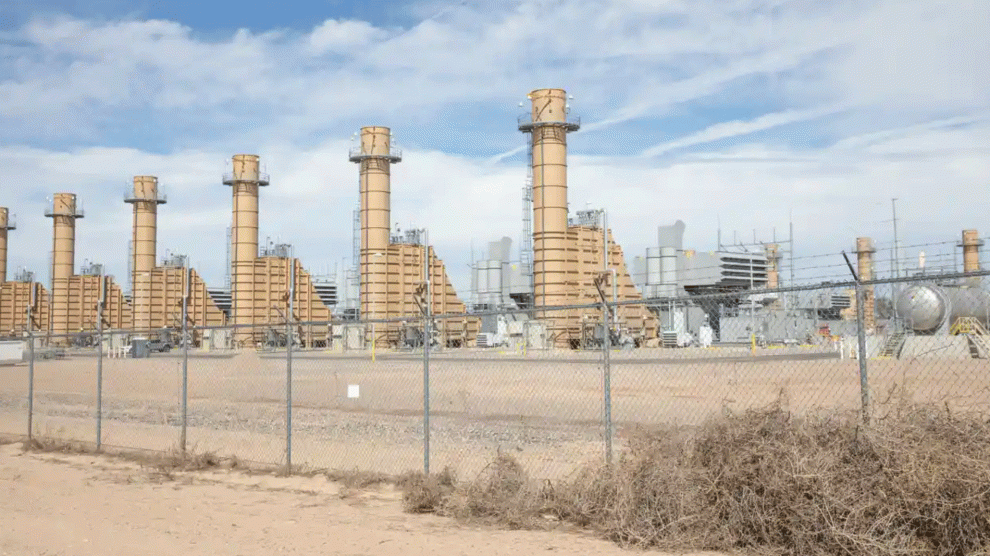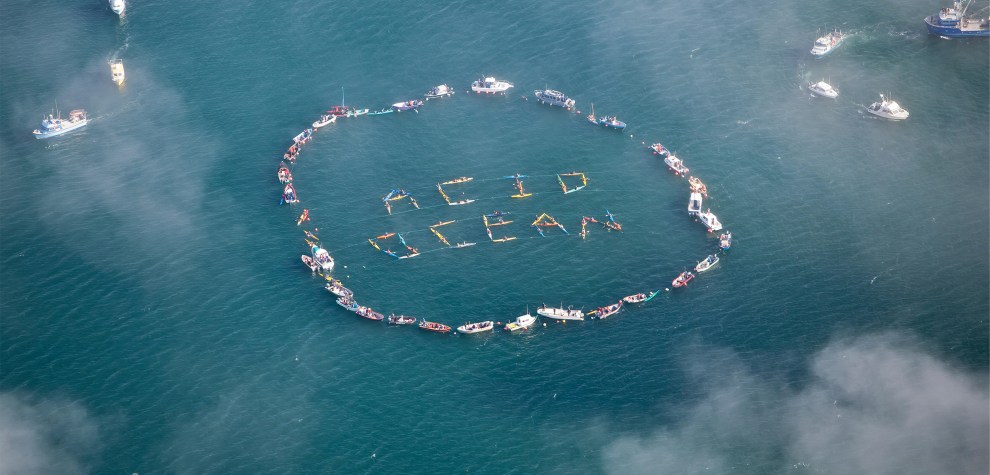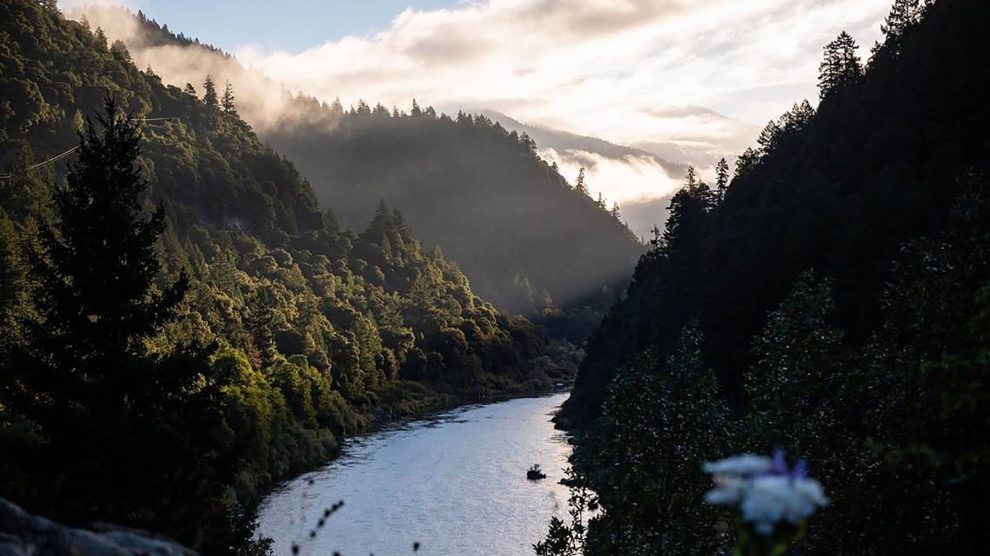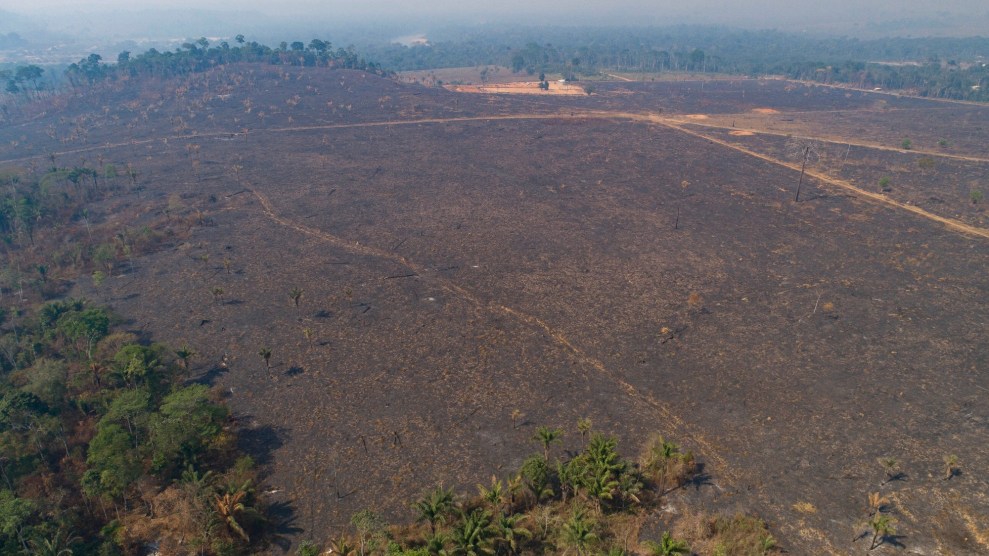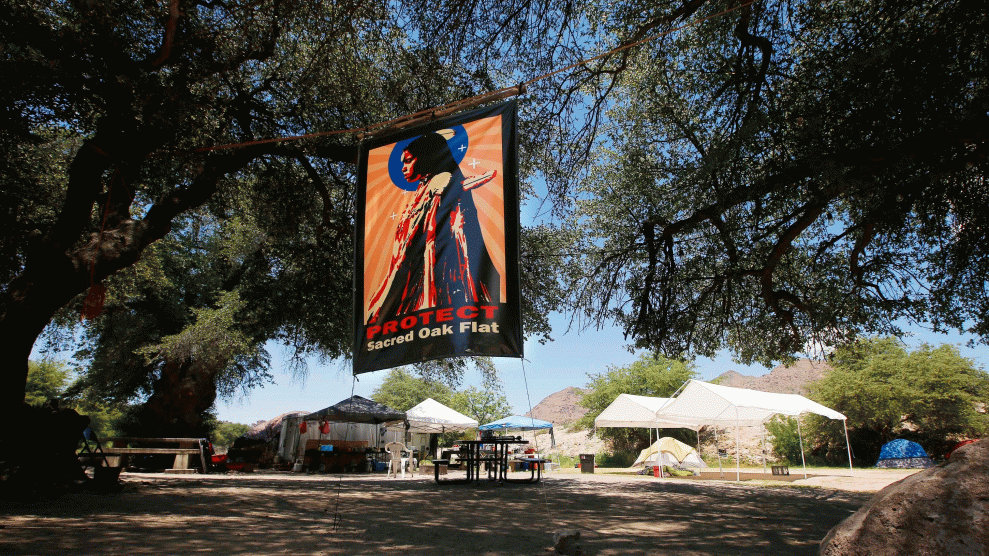
A protest encampment in the Oak Flat area of Superior, Arizona.Ross D. Franklin/AP
This story was originally published by Grist and is reproduced here as part of the Climate Desk collaboration.
For nearly a decade, tribal leaders in Arizona have fought to save Oak Flat—a sacred site central to the religious practices of the San Carlos Apache and other Indigenous nations connected to the area. Now, the site’s fate rests with the 9th Circuit Court of Appeals, who is weighing whether mining copper in the area, and effectively destroying the site, violates the religious rights of local Indigenous peoples.
Religious groups including: Seventh-day Adventists, the Islam and Religious Freedom Action Team of the Religious Freedom Institute, The Church of Jesus Christ of Latter-day Saints, the Christian Legal Society, Jewish Coalition for Religious Liberty, and the Sikh Coalition, have banded together to support the Apache and filed briefs as part of their advocacy.
Located about 40 miles from Phoenix, Oak Flat sits atop the third-largest deposit of copper ore in the world. In 2014, Arizona Senators John McCain and Jeff Flake authored legislation to transfer Oak Flat from Tonto National Forest to Resolution Copper, a British-Australian company owned by Rio Tinto and BHP. For nearly a decade, tribal leaders have fought to keep the ceremonial grounds free from mining projects and other disturbances.
The company, which is known to mine iron ore, copper, lithium, aluminum and other materials, has previously been accused of desecrating Indigenous lands. In 2020, the mining company destroyed Juukan Gorge, a 46,000 year-old Aboriginal heritage site in Australia. Rio Tinto’s mining of copper and gold in the Oyu Tolgoi mine in Mongolia have also raised concerns with local herdsmen. The company says the copper at Oak Flat will be used for electric vehicles, smartphones, and MRI scanners.
Oak Flat has been used as a religious site to connect Indigenous peoples to their Creator, faith, families and natural world since before colonization and European contact, said Wendsler Nosie, the former chairman of the San Carlos Apache Tribe and the head of Apache Stronghold to the Arizona Republic.
“While we cherish different religious convictions, we are united in our commitment to defend religious freedom. This case holds implications beyond its effect on Native American Worship,” one brief contained.
According to the Arizona Republic, Rio Tinto says mining at Oak Flat would bring 3,700 jobs and $1 billion annually to Arizona’s economy.
